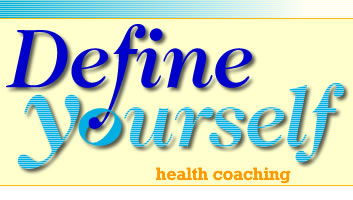I am aware that people have different capacity levels for empathy. Some feel deeply about their own family, but struggle with feeling anything for others. Some feel deeply for animals and children, but not so much for adult humans. Some of us shelve things happening in the world just to get by in our own struggling world. I understand that people process information differently, with some needing a barrage of details and facts and others being more intuitive thinkers. Yet, with all of this observation I am still confounded by the blindness and self- centeredness of the human race.
How does the human race not see its self-induced injustices? I am human, I see. As a so called “most evolved” species, how do we not see the injustice of creating enemies with our “us versus them” labeling, of enslaving and killing over 56 million land animals a day, and of thinking that we have a right to dominate? This unconscionable naiveté is beyond my comprehension, and so I too compartmentalize it away to function without being overwhelmed by the farce of my existence. Beyond being vegan, beyond non- violent communication, beyond self-exploration, “how can I use my energy to create a world of peace for all beings?”
We think we have a lot of choices, but in fact our enculturation limits us. We have the illusion of being free, but we are all caught in a smoke screen. A screen or filter that is imposed as babes and perpetuated in the country we live in, and the people with whom we align. This is not freedom this is an enslaved way of thinking which preserves the status quo. When we break away from this entrenched thinking we are met with enormous resistance politically, economically, and emotionally. Is it enough that I question social beliefs, practice veganism and non violent communication, and am open to other ways of being?
Finding our own truth is not easy. Martin Luther King Jr., once said:
“And there comes a time one must take a position that is neither safe, nor political, nor popular—but one must take it simply because it is right.”
Veganism is my truth because it is about creating a Utopia where all peoples, and all animals, can live in peace on a well planet. Consequently, if I want to have an impact on the way others see peace I must be the change I want to see. To optimize my performance in this quest I want to be my best physically, mentally, emotionally, and spiritually.
To keep alive the peace within I use this guide as a foundation to optimizing my well-being.
In My Body,
I will treat my body to nutritious foods.
I will avoid highly processed vegan foods loaded with sugar, salt, and fat.
I will learn from vegan nutrition experts (PurePlant Nation, the Buddhist Chef) what fuels my body best.
I will stock my home with essential vegan stables like plant milk, spices, cooked beans, frozen vegetables, sauces, seeds, nuts, grains, a blender, and a steamer.
I will get at least six hours of sleep each evening.
I will drink at least 64 ounces of water a day.
I will exercise regularly to build strength, stamina and flexibility.
In My Thinking,
I will focus on the task at hand, and shut out distractions.
I will sharpen the saw thru continual learning.
I will practice win win in all my communications.
I will respect the choices of others.
I will challenge my own assumptions, triggers, and behaviors.
I will practice patience daily by being present and observing.
I will learn to communicate in a non violent manner (Marshall Rosenberg).
I will practice open minded thinking.
I will be a good listener.
I will be a collaborator.
In My Spirit Self,
I will honor myself by staying focused on optimizing my energy.
I will spend time in nature, or visualize a natural setting that infuses me with oneness.
I will be persistent in valuing peace by optimizing my energy physically, mentally, emotionally, and spiritually.
I will be courageous by listening to my heart, hearing the cries of those without a voice, and by surrounding myself with people and places of positive energy.
The tipping point that changes these basic inequities I may never see. I do find solace in spiritual leaders like the Dalai Lama, Eckhart Tolle, Ram Dass, and many others. I am not alone and either are you. We can help shape the world by being our best and by enlarging our community. This is my quest and this is my bliss.
